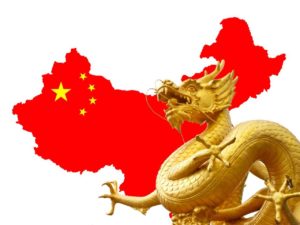KCG Researchers Involved in a Recent Study on China’s Belt and Road Initiative
China’s Belt and Road Initiative (BRI) aims at, first of all, fostering economic, social and political interactions between China and the other BRI countries. It should, however, also help encourage more communications, mutual understandings and cooperation among all BRI countries involved. This is expected to stimulate economic growth, facilitate economic integrations and encourage global prosperity. Cross-country large-sized infrastructure projects clearly lie in the key policy focus area of BRI. A great part of these infrastructure projects aim at building six land corridors and a maritime silk road to strengthen connections and transactions within Asia and also between Asia and Europe. BRI with its huge size in terms of the number of countries involved and resources invested in related projects as well as its broad scope covering cross-country interactions in economic, societal, cultural and political aspects is expected to have not only direct impact on the BRI countries but also indirect impact on those countries that are not directly involved like Germany.
In order to learn more about BRI, to investigate the role of BRI for particularly Bavaria, Germany and the EU and to provide related policy suggestions, a research project with the ifo Institute commissioned by the Industrie- und Handelskammer (IHK) für München und Oberbayern and led by Prof. Gabriel Felbermayr Ph.D. (President at the Kiel Institute for the World Economy (IfW) and KCG Senior Fellow since June 2019) was carried out early this year. Dr. Wan-Hsin Liu (KCG Coordinator & IfW) together with Frank Bickenbach (IfW), Moritz Goldbeck (ifo Institute), and Prof. Dr. Alexander Sandkamp (Kiel University) were involved in this project.
In its final report published this May the project team provides an overview of BRI, including its goal, key policy measures and some background information and stylized facts for countries involved. Against this background it then discusses opportunities potentially brought by BRI to the world economy, to Germany and especially to Bavaria. Associated economic risks and challenges through, for example, BRI-induced shifts of competitiveness at the firm- and country level, are also explored and discussed. Based on the empirical findings, the report concludes with action recommendations for companies and policy suggestions for political decision-makers in Bavaria, Germany and the EU.
The report (in German) “Felbermayr et al. (2019), Megatrends im Welthandel: Die neue Seidenstraße – Wachstumsregion zwischen Europa und Asien, Ifo-Studie im Auftrag der Industrie- und Handelskammer für München und Oberbayern“ is available here.




 KCG Projects
KCG Projects


